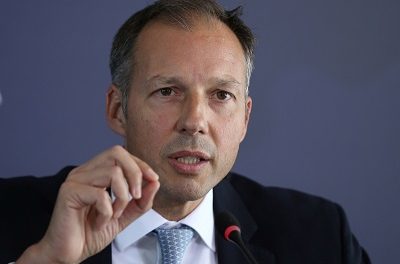
New Energy Agency report points to lack of legal frameworks for clean energy projects

By Freeman Ya Ngulu.
According to the International Energy Agency (IEA) and the African Development Bank Group this new analysis, which benefits from the review of over 85 case studies and over 40 stakeholder interviews, the absence of specific legal regimes for clean energy projects can affect investors’ appetite in the local markets, while also placing a burden on contract negotiation.
Financing Clean Energy in Africa, a World Energy Outlook Special Report, builds on the key findings from the Africa Energy Outlook 2022. It was launched at the Africa Climate Summit in Nairobi earlier in August.
The absence of specific legal frameworks has however not effected investors risk appetite as seen with Namibia who already in 2021, signed a Memorandum of Understanding with the European Union and a partnership agreement with Germany at COP27. In May 2023 Namibia signed a feasibility and implementation agreement with a German company (Hyphen) to develop a project that would produce 2 Mt of low-emissions ammonia per year for an estimated investment of US$10 billion.
Furthermore, Namibia also mobilised concessional funding of EUR540 million from the European Investment Bank and Dutch firm Invest International to finance its industrial clean energy ecosystem and to fund a potential equity share in the project.
Accoriding to the report, few hydrogen projects have reached a final investment decision and concessional finance can play a key role to fund demonstration projects. For example, the German Government set up a EUR350 million grant programme to support hydrogen projects in Africa. Initiatives also exist to reduce uncertainty around demand as seen with Germany’s H2Global instrument, a EUR900 million auction-based mechanism in 2021, using a contracts-for-difference approach to offer long-term purchase agreements to hydrogen producers and short-term contract sales to end users.
“While public capital can play a critical role in supporting this nascent trade by stimulating both supply and demand, significant capital from the private sector will also be required. Ultimately, the continent’s participation in the low-emissions hydrogen trade will depend on actual production costs and financing arrangements, while the eventual volumes exported will be contingent on the evolution of global demand,” the report reads.
Currently only 17% of export projects worldwide planned for 2030 have potential to materialise. Regulatory risks are significant, as many governments have yet to implement specific policies and regulations on hydrogen trade, and no standard certification system for the emissions intensity of hydrogen production, conversion and transport has been developed. In addition, existing transport infrastructure would need to be scaled up to handle high trade volumes at a global scale.
Urgent action is needed to dramatically increase clean energy investment in Africa, which has fallen short despite the immense opportunities,” said President William Ruto of Kenya. “Yet this report is not simply a catalogue of Africa’s challenges. Instead, it is an inspiring testament to the innovative spirit of our continent, with a vast array of solutions emerging from Africa’s entrepreneurial minds.”
“The African continent has huge clean energy potential, including a massive amount of high-quality renewable resources. But the difficult backdrop for financing means many transformative projects can’t get off the ground,” said IEA Executive Director Fatih Birol. “This report, which builds on the IEA’s landmark Africa Energy Outlook 2022, shows what is needed to lower barriers to investment, allowing African countries to tap accessible and affordable solutions to match their clean energy ambitions.”
“The current shortfall in clean energy investment in Africa puts at risk the achievement of a host of sustainable development goals and could open new dividing lines in energy and climate as clean energy transitions gather speed in advanced economies,” said AfDB President Dr Akinwumi Adesina.
“This report, which makes a compelling case for Africa to receive a bigger share of global climate financing, serves as an informative tool for policymakers in Africa, while best practice cases from the African Development Bank provide valuable insights for developers and capital providers,” he told the summit.
The report suggest several strategies to scale up private investment, for instance the role of de-risking support from development finance institutions and donors: by 2030. US$28 billion in concessional capital is needed to mobilise the required US$90 billion in private investment which will allows development finance institutions to move into non-commercial aspects like supporting enabling environments, derisking R&D in unproven technologies and derisking investment in fragile and conflict-afflicted African states.













































